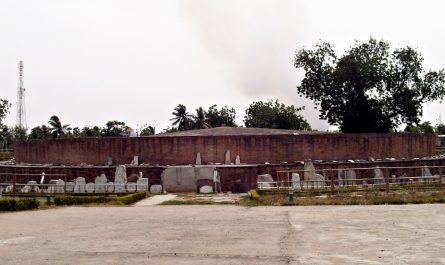CBSE Science Projects: In a moment or maybe even in seconds, a project can assist a learner in comprehending the complicated structure of a subject. Well-structured projects and concepts explain things clearly and make it easy for students to understand why laws, derivations, and equations exist. For the children, CBSE used an interactive approach to learning. Students are given assignments by CBSE to help them grasp science content and break down the structure.
Creating and identifying the question, researching material, establishing a hypothesis, testing and constructing, gathering and obtaining data, and so on are all steps in a CBSE Science project. Students get a sense of confidence and self-esteem while developing and using abilities in textual and lab research, statistical methods, and public speaking, all of which are critical in comprehending our technical environment and our role within it.
The experiments in science are generally methodical methods that are carried out to contradict, verify, or validate a hypothesis. It uses illustration to show the causes and consequences, as well as detecting the outcomes when certain factors are used. Science projects may differ in size and scope based on the objectives. However, based on the technique, they are significant and can be based on a logical interpretation of the outcomes. Here we have put together a collection of science projects for CBSE students. Students studying in Classes 6 to 12 can work on these CBSE Science projects.
CBSE Science Projects, Class 6 to 12
There is no denying that science is incredible. Biological notions of life, natural characteristics of our planet Earth, optical illusions caused by light and reflection, the candle underwater test and much more are all as exciting as learning about scientific theory. Science and technology’s value cannot be described logically, but it has undoubtedly contributed to the formation of the environment in which we now dwell. Here are some ideas of CBSE Science projects that students can use for their school’s Science fair:
- Demonstration of good health and distinction from a condition of illness. Remind people to be cautious when it comes to their health, investigate their options, and take advantage of the resources available.
- Presentation of recognized facts and research discoveries in various medical systems such as Indian, Modern, and Homeopathy, among others. Sufficient family welfare measures are required. There is a need to develop low-cost, nutritional food.
- Earthquake experiments, where students can construct structures and see how secure they are with different traditional material bases.
- Windmill science project in which one can demonstrate how the world desperately needs free energy right now, and wind turbines or windmills are the best natural energy sources available presently.
- The UV light experiment will assist people in learning how to block ultraviolet light. The efficiency of sunscreens of various strengths, ages, and brands under diverse situations are compared and assessed in this study.
- The law of reflection is the foundation of the kaleidoscope experiment, and white light is a blend of VIBGYOR. Whenever white light strikes the mirror’s surface, it is reflected at an angle where the angle of incidence equals the angle of reflection. Some lovely patterns are created as a result of the different lighting reflections.
- The lava lamp experiment relies on two key scientific principles: density and polarity. This science project helps to can why oil and water do not form a mixture.
- Fossil casting science project will assist in understanding and learning how scientists reveal the mysteries of prior centuries; for instance, much of what people know about dinosaurs originates from the understanding of fossils.
- Biology Class 11 Chapter 1 Notes
- NCERT Solutions for Class 12 Physics
- NCERT Solutions for Class 12 Maths
- Electric Charges And Fields
- CBSE Question Bank Class 12
What are the things that are not applicable in a CBSE Science Project?
Every CBSE Science Project that students do should adhere to the scientific process and be a research effort. It must be in accordance with the given sub-theme. At the regional level, many presentations are shown, but only a few make it to the national level. The following are some instances of initiatives that were not preferred:
- Merely replicating an experiment from the science textbook, such as germinating seeds or forestry.
- Creating an odd theory without doing any experiments or providing evidence supporting the concept, such as generating energy from speed breakers etc.
- Presenting unsupported claims that defy accepted scientific laws and concepts, such as creating energy out of nothing.
- Introducing an idea based on online sources without conducting a thorough study.
- Delivering an idea that cannot be addressed in a classroom setting, thereby using unethical methods to make it succeed.
- Basic posters, thermocol or wood models presenting science/technology principles, such as digestive system models, land degradation models, hydropower station models, pollution prevention models, and so on.
- Simply presenting ideas and concepts that are well-established and then used or have been used in many nations without conducting a thorough investigation into their sustainability and relevance in the current environment, such as the generation of energy from sea or ocean.
How to prepare a science project?
Some of the steps to follow to prepare a CBSE Science Project is given below:
- Choose a topic that interests you.
- Collect data for your project.
- Determine the work schedule.
- Create and evaluate your idea by devising experiments to test it:
- Keep track of your findings and observations:
- Consult your teacher, parent, or researcher.
- Use statistics to get conclusions.
- Make a summary of the findings and draw conclusions.
- Specify the project’s usefulness and purpose.
- Every year, CBSE conducts a science exhibition intending to instil a scientific mindset and 21st-century abilities that are essential in recent times. A CBSE Science fair project involves asking and addressing questions; it helps children analyse things better and use their rational thinking skills.
FAQs: Frequently asked Questions
What do students have to do in CBSE projects?
Students are given assignments by CBSE to help them understand science content and break down the components. Students must complete their science projects in accordance with the CBSE Syllabus for their elective topics.
What are the interactive means of learning in the CBSE curriculum?
CBSE took an interactive approach to learn for a better understanding of children. Students are given assignments by CBSE to help them acquire science content and break down the structure.
Are there any compulsory projects in CBSE class 12?
Preparing a project is a must for the 12th grade, as the marks will be added to the final grade score.
What makes a good science project?
A successful Science project takes the student on a path of exploration, which is powered by their curiosity. The student then creates an experimental setup or process that will generate data from which he or she may draw inferences to confirm or disapprove of the theory.




